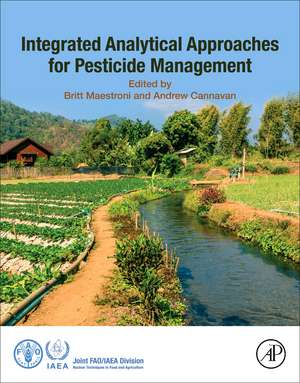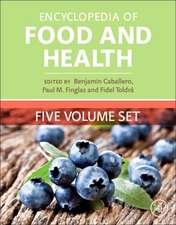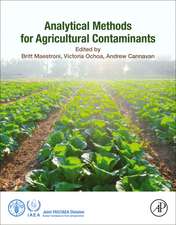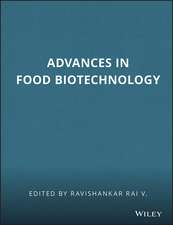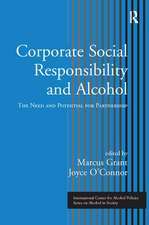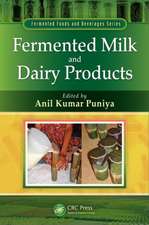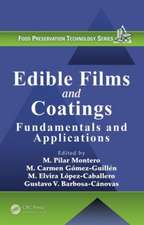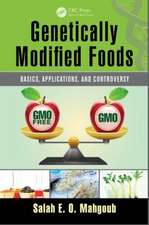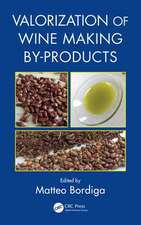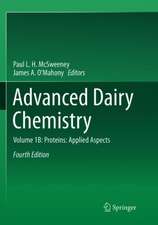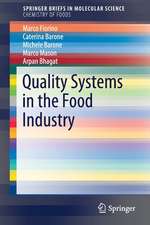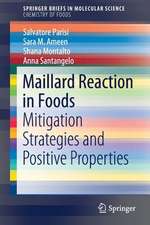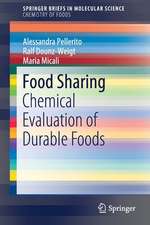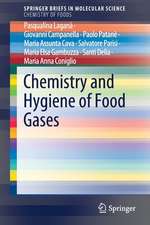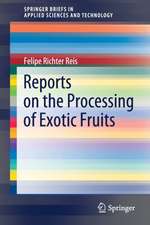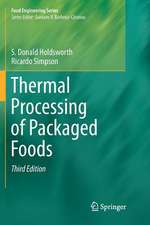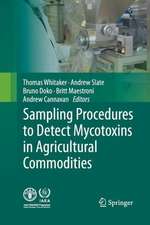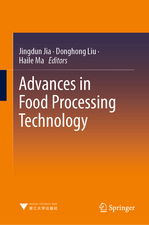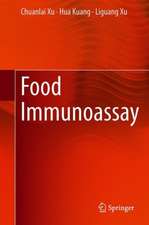Integrated Analytical Approaches for Pesticide Management
Editat de Britt Maestroni, Andrew Cannavanen Limba Engleză Paperback – 19 iul 2018
The book's practical nature and generic guidelines distinguish it from others in the marketplace.
- Provides coverage of risk assessment and effective testing technologies
- Covers generic guidelines on pesticide analysis on different environmental matrices for use in the developed and developing world
- Presents the most up-to-date information in research sample testing preparation and method validation to detect pesticide residues in food
- Includes examples of each method for practical application
- Demonstrates proven, reliable research data and the associated quality assurance approaches for end product testing for food, water and soil sediment
- Describes the concept of integrated analytical approaches for pesticide management practices
Preț: 1133.13 lei
Preț vechi: 1484.30 lei
-24% Nou
Puncte Express: 1700
Preț estimativ în valută:
216.84€ • 225.02$ • 181.25£
216.84€ • 225.02$ • 181.25£
Carte tipărită la comandă
Livrare economică 08-22 martie
Preluare comenzi: 021 569.72.76
Specificații
ISBN-13: 9780128161555
ISBN-10: 0128161558
Pagini: 338
Dimensiuni: 216 x 276 x 25 mm
Greutate: 0.79 kg
Editura: ELSEVIER SCIENCE
ISBN-10: 0128161558
Pagini: 338
Dimensiuni: 216 x 276 x 25 mm
Greutate: 0.79 kg
Editura: ELSEVIER SCIENCE
Public țintă
Lab Managers and analysts, scientists/researchers, students and regulators in food control and agricultural contaminantsCuprins
1. Introduction
2. Generic guidelines on integrated analytical approaches to assess indicators of pesticide management practices at a catchment scale. Black-box monitoring and the laboratory’s role in fostering good agricultural practice
3. Sampling strategies
4. Implementation and optimization of soil sampling: some practical guidance and considerations
5. Ecological Risk Assessment of Pesticides Used in Agriculture
6. Biodiversity and Biomonitoring Indexes
7. Use of biomarkers for studying the effects of pesticides on freshwater organisms
8. Overview of Analytical Methodologies and Techniques for Pesticide Residue Analysis
9. Pesticides in water, soil and sediments
10. Quality control measures at the analytical laboratory
11. The use of nuclear techniques for environmental studies
12. Easy to use pesticide fate/effects models and statistical tools
13. Environmental Risk Indicators: Their Potential Utility in Pesticide Risk Management and Communication
14. Remediation and Mitigation Strategies
15. Integrated Analytical Monitoring
16. Assessment of potential risks and effectiveness of agrochemical usage in a catchment: a case study of the Nzoia Nucleus Estate sugarcane farms in western Kenya
17. Indicators of Good Agricultural Practises in Viticulture
18. Conclusions and recommendations
Appendix
1. Description of the Pesticide Impact Rating Index (PIRI)
2. Framework for sampling for pesticides in water/sediments
3. Sampling tools and procedures
4. Linking soil and pesticide behaviour at a landscape scale: the way forward to opening the black-box
5. Biomonitoring validation
6. Interpreting water and soil monitoring parameters
2. Generic guidelines on integrated analytical approaches to assess indicators of pesticide management practices at a catchment scale. Black-box monitoring and the laboratory’s role in fostering good agricultural practice
3. Sampling strategies
4. Implementation and optimization of soil sampling: some practical guidance and considerations
5. Ecological Risk Assessment of Pesticides Used in Agriculture
6. Biodiversity and Biomonitoring Indexes
7. Use of biomarkers for studying the effects of pesticides on freshwater organisms
8. Overview of Analytical Methodologies and Techniques for Pesticide Residue Analysis
9. Pesticides in water, soil and sediments
10. Quality control measures at the analytical laboratory
11. The use of nuclear techniques for environmental studies
12. Easy to use pesticide fate/effects models and statistical tools
13. Environmental Risk Indicators: Their Potential Utility in Pesticide Risk Management and Communication
14. Remediation and Mitigation Strategies
15. Integrated Analytical Monitoring
16. Assessment of potential risks and effectiveness of agrochemical usage in a catchment: a case study of the Nzoia Nucleus Estate sugarcane farms in western Kenya
17. Indicators of Good Agricultural Practises in Viticulture
18. Conclusions and recommendations
Appendix
1. Description of the Pesticide Impact Rating Index (PIRI)
2. Framework for sampling for pesticides in water/sediments
3. Sampling tools and procedures
4. Linking soil and pesticide behaviour at a landscape scale: the way forward to opening the black-box
5. Biomonitoring validation
6. Interpreting water and soil monitoring parameters
